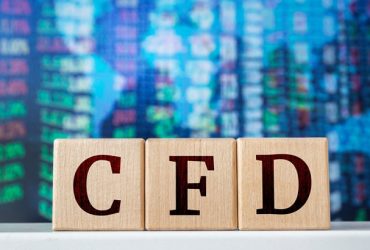What is indices trading? Indices trading involves the selling and buying of stock indexes.
What is the difference between index and stock funds?
The difference between an index fund and a stock is that stock represents a company’s share, whereas the index fund is a type of mutual fund that tracks an index of performance—a certain index of stocks.
A stock is the company’s share which is a representation of ownership. If you buy an equity share, it means you are a part of the company and get the rights to its assets. Like other kinds of securities, they can be purchased and sold through exchanges.
Mutual funds are a form of investment that allows people to pool their money and invest in a variety of assets. One type of mutual fund is an index fund, which invests in portfolios constructed according to a particular stock market index.
There are many key distinctions between index funds and stocks that you must take into consideration before making an investment choice. That is the reason why you need to hire a freelance risk management consultant to help you make the wisest decisions for you, your employees and your company.
Low-cost ratio
When comparing the costs of stocks and index funds, a low expense ratio is sometimes more significant. The index fund follows the S&D 500, for example. These funds are mostly exchange-traded mutual funds (ETFs) as well as mutual funds. Index investments are considered to be passive, whereas actively managed assets and stocks require you to pick specific equities.
If you want to invest in a low-cost index fund, keep the following ideas in mind:
- The expense ratio represents the fund’s management fee. It varies from one fund to the next.
- Because active funds need more assets for administration and take longer to build, the expense ratio of passive ETFs is usually lower than that of active funds. In the end, a lower cost ratio will result in greater profits for the investor.
- Look over the facts sheet for an ETF to discover its expense ratio. This is the proportion of the fund’s overall expenses paid by investors.
- The cost ratio is determined by dividing the total costs of the project into the return on investment. The lower this number, the better since higher-cost items are spread across investors.
Diversification
The most significant benefit of diversification is its potential to decrease risk and improve returns. Certain investments will do better than others when diversified, and a portfolio of stocks typically yields at least the long-term historical return. Returns for short-term periods can be more volatile, which is why diversification is crucial.
Although diversification may be tough, mutual funds can be complicated. They may be a wonderful method for investors to invest in a variety of assets and reduce the danger. An index fund may have holdings in hundreds or thousands of businesses.
An index fund investment allows investors to participate in hundreds of businesses and benefit from low-cost ratios. It’s critical to your financial stability that you can diversify between the index and stock funds.
Lower risk
Most investors prefer to invest in index funds rather than actively managed funds when it comes to deciding between them. Cost-effective methods to participate in the market’s gains are through index funds. There are, nevertheless, several things to consider when selecting index funds.
- Consider first the risk. Risk reduction does not necessarily mean fewer profits.
- Index funds could have an affordable expense ratio which means they could have lower volatility prices for stocks.
- In addition, they could have lower tax rates than funds that are actively managed.
- Stocks aren’t more secure than cash or government debt, but they are safer than high-risk investment choices like growth stocks.
Lower cost
Investors are attracted to low-cost index funds and equities since they allow them to save money without all of the work and aggravation involved in investing. Trading is not without expenses, but fees and taxes can often be avoided by investing in low-cost index funds.
A lot of index funds are based on an identical index. Since they don’t have management charges, the price of index funds is the same. Experts advise investors to take a look at the expense ratio in deciding between these two options for investing. The lower expense ratio for index funds implies that they closely follow how they perform against their index of a benchmark.
Additionally, investors should also consider other financial metrics such as what does EPS stand for, which stands for earnings per share, to better understand a company’s profitability and potential for growth.
Low-maintenance
You can purchase index funds in a variety of ways, such as through your retirement plan sponsored by your employer or your retirement account. Another method to purchase index funds is to use a brokerage account online. Since index funds are low maintenance, it is recommended to consult an expert in finance before purchasing any fund.










